Search Images
Browse Content (p. 1121)
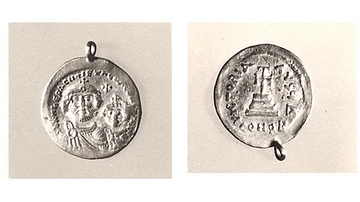
Image
Solidus of Heraclius
Solidus depicting Heraclius, who reigned from 610 CE to 641 CE. Discovered in Qasr-i Abu Nasr (Iran), it is made of gold and measures 1.9 cm. (Metropolitan Museum, New York)
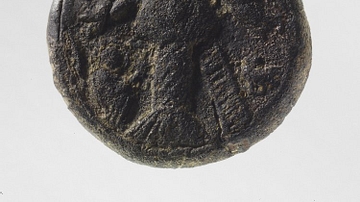
Image
Pilgrim Token
This terracotta pilgrim token features a saint flanked by angels; a monk holding a censer, and a palm branch. Made in Syria 6th-7th century CE. Measures 34.5 mm. British Museum, London
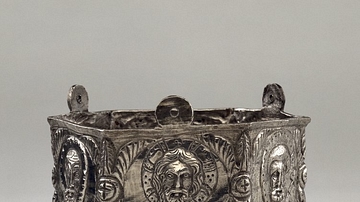
Image
Byzantine Silver Censer
Silver censer made in Constantinople (now, Istanbul) between 602-610 CE. Found near Acheripoietos Monastery, Cyprus. Depicts Jesus Christ, Mary, and Saints Peter, Paul, John the Evangelist, and James, each in a border of palms. (British...
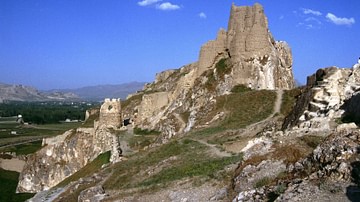
Image
Tushpa/Van
The citadel of Tushpa (Van), capital of the ancient kingdom of Urartu (9th-6th century BCE) and later Armenian kingdoms. Lake Van, eastern Turkey.

Image
Theodosius I Solidus
Solidus coin struck in 395 CE depicting Roman emperor Theodosius I (r. 379-395 CE). From the White Mountain Collection.

Image
West Church, Umm el-Jimal (Jordan)
Ruins of the West Church found at the village of Umm el-Jimal in the north of Jordan, which was occupied between the 1st century CE (by the Kingdom of Nabatea) and the 9th century CE (during the Abbasid period). Inscriptions made by Tanukhid...
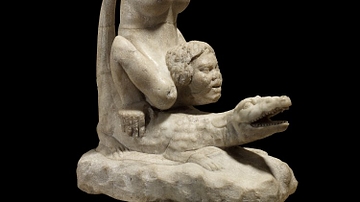
Image
Roman Sculpture of an African Acrobat
This marble sculpture from Rome, Italy dates to sometime between the 1st Century BCE and the 1st Century CE. It portrays a young male Aethiopian, or black African, acrobat balancing on a crocodile. (British Museum, London)
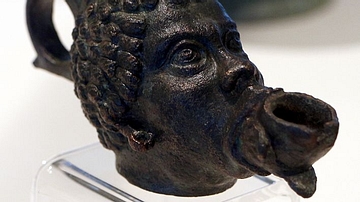
Image
Bronze Oil Lamp in the Shape of an African Slave
This Roman oil lamp of unclear provenance was made in the 1st Century CE. It portrays an Aethiopian slave, with barbarians like Africans and Celts being popular motifs in Roman art. The lamp has also been suggested to have erotic connotations...
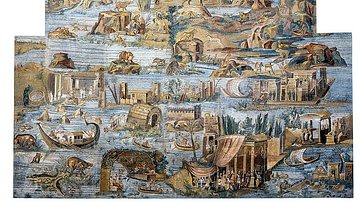
Image
Nile Mosaic of Palestrina
This mosaic was part of the floor of a grotto in Palestrina, near Rome, Italy. It dates to c. 100 BCE and is an example of the interest that Roman artists and elites began to take in Ptolemaic Egypt during the 2nd and 1st Centuries BCE...
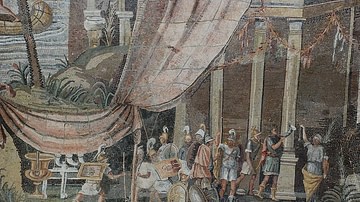
Image
Roman Mosaic of Ptolemaic Soldiers
This scene is part of the Nile mosaic of Palestrina (c. 100 BCE), found in Palestrina, Italy. It portrays a group of Ptolemaic Greek soldiers in Egypt on the banks of the Nile. The soldiers are clad in typical Hellenistic equipment including...